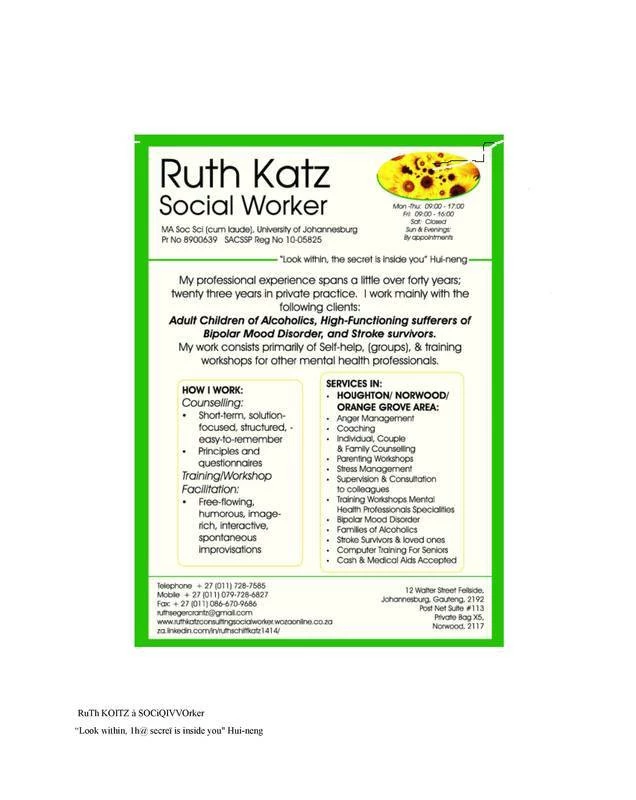LESSONS LEARNED FROM A STROKE

When my beloved father suffered a stroke in early 1992, he was already in the hospital for tests. After the acute phase, he was transferred to a rehabilitation unit close to the hospital.
There, he was seen by a neurology intern, who had these words to say to me, my mother and husband:
“Just dump him in a bed. Don’t bother to dress him; he will die soon anyway”.
I knew I had two choices: ruminate about the unfairness of life—causing myself more stress and pain—or be proactive and help others who had also encountered such insensitive treatment from medical personnel.
My decision was immediate; I would learn everything I could about the causes, symptoms, and prognosis of stroke, and use this knowledge to help others in the same position.
I had subscribed to: ‘Rolling Inspiration - The Lifestyle publication for People with Mobility Issues’, for many years, and felt it would be an ideal forum to share what I’d learned about strokes with others.
When my dad was well enough to go out, I wanted to take him to a Stroke Club not far from where we both lived.
When I arrived at the centre, after transporting my rather reluctant dad to undergo rehab with the occupational, physical and speech therapists, the volunteers asked me to take on the role of counsellor.
Because I knew it would be therapeutic, I immediately agreed to join the multidisciplinary rehab team!
While working at the local recreation centre, I facilitated groups for partners of stroke survivors, during which they could unburden themselves by sharing common experiences and frustrations.
I count initiating stroke counselling for patients not covered by medical insurance, and their partners, one of the highlights of my career.
My dad had been a leading light at the golf club he joined over fifty years earlier, and had many friends there. Sadly though, most of his golfing friends didn’t visit him, seemingly not wanting to see the person they had known and loved for his charismatic personality and brilliant sense of humor, so brought down by illness.
It was only when dad realized his golfing friends weren’t going to return, that he accepted the club as a necessary social outlet—even palling up with a man from his native Lithuania.
Our relationship changed markedly during the time he lived after the right-brain stroke, from January 1992 until September 1994. Before the stroke, he had been a hold-your-cards-close-to-your-chest kind of person.
Slowly, he started opening up about his true feelings and past experiences, which took immense courage. In his native Lithuania, silence was indeed golden, and speech was silver—speaking out against the authorities could lead to imprisonment, torture, or even death.
I only learned how unbearable life had been there from his siblings; he was only nine when the family immigrated to South Africa, and the experiences traumatized him so much he never spoke of his feelings.
I, on the other hand, chose a profession that was all about exploring one’s emotions , which made it difficult to communicate about intangibles with him.
Sadly, the two years after the right-brain stroke were filled with admissions to the hospital for repeated bouts of pneumonia, a condition which ended his life on September 10, 1994.
- Saturday, September 10 1994, was an especially important day falling between the Jewish New Year and Yom Kippur, the most sacred days in the Jewish calendar, befitting of a man who had lived an authentic and honest life.


